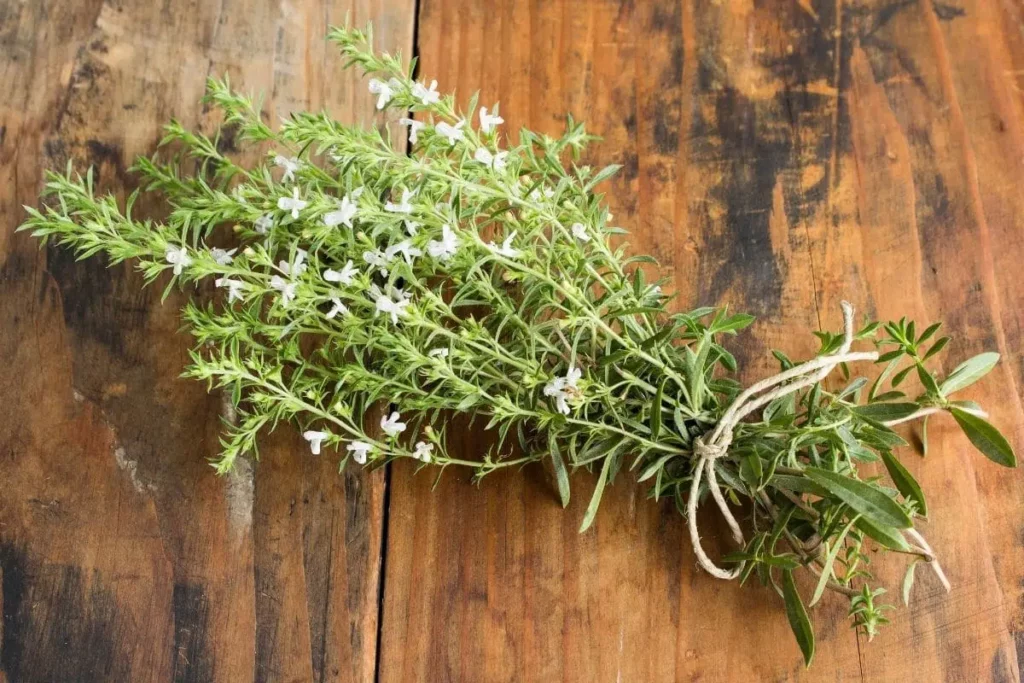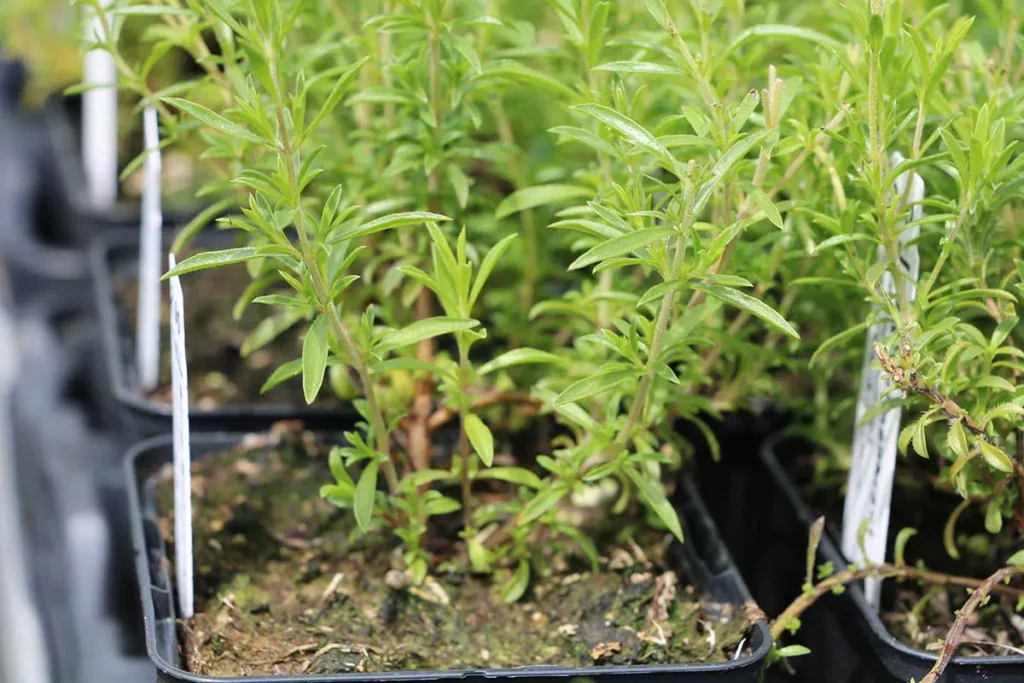The strong-tasting savory is the perfect spice for many winter dishes. It goes best with legumes, such as beans. So that you always have it on hand, you can freeze the savory.
- cut just before flowering
- wash and dry before frosting
- freeze whole stems or only leaves
- put leaves with water in ice cube tray
- use up after four months
Contents
Harvest
There are several species and varieties of savory, mainly two of which are cultivated in gardens and pots. Each type of savory can be frozen. Summer annual savory, also known as garden savory, dies back in the fall and must be reseeded each year. Therefore, you should harvest it regularly to build up a supply. If possible, cut the stems just before flowering because the herb has a particularly high concentration of essential oils at this time. Furthermore, when harvesting, keep these tips in mind:
- Aroma varies during the day
- highest content of essential oils in the late morning
- therefore cut stems late in the morning
- choose a sunny and warm day
Simply cut the herb stems with scissors or a small knife. Perennial mountain savory, on the other hand, can still be harvested fresh until the first frost, but you can also freeze or dry it if necessary.
Note: You can also freeze flowering savory. It can be used in cooking and also preserved. However, it tastes a bit milder, so you will need larger quantities of it.
Procedure
The actual freezing of savory is not complicated:
- Wash the herb under running water
- then dry well with kitchen towel
- freeze as whole stalks or just the plucked leaves
- pack in suitable, airtight containers
- place in the freezer immediately after harvesting and preparation
- do not leave for a long time
Whole stems are best tied into bunches, which you can later add to the dish when cooking. Remove the frozen savory herb bouquet before serving. Alternatively, you can strip off the fine leaves and freeze them in an ice cube tray along with a little water as convenient herb cubes. Instead of water, you can use a neutral-tasting vegetable oil, such as sunflower or canola oil. Once the cubes are solid, however, you should transfer them to an airtight container.

Tip: If you want to freeze freshly harvested vegetables (for example beans) and savory at the same time, you can add a bunch of savory to the freezer container at the same time.
Freezing time and use
Frozen savory will retain its flavor provided it does not remain in the freezer for more than three to four months. This means that you should use up your freshly made stock within this time. After that, the kitchen herb loses both its valuable ingredients and its characteristic aroma due to the influence of cold-loving microorganisms. Although you can still use savory up to 12 months after freezing, by then it will have lost its strong flavor. Do not thaw frozen savory before using, but add it to the dish immediately.
Frequently asked questions
Which is better, freeze savory or dry?
Many herbs should not be dried, but frozen if possible. Popular kitchen herbs, such as parsley, chives or basil, for example, lose their aroma through drying and are therefore better off in the freezer. Others, however -which include garden and mountain savory- should be dried if possible. Then the herb retains its strong aroma for up to a year, provided it is stored in an airtight container. However, freezing is a good alternative.
Can I freeze garden savory along with other herbs?
Of course, you can freeze this delicious kitchen herb together with other herbs. In this way, you can immediately portion out tasty spice mixtures that you can take out of the freezer when you need them. Sage goes particularly well with summer or mountain savory, but other Mediterranean herbs, such as oregano, marjoram, rosemary, lavender or thyme, also harmonize well.
What dishes does savory go well with?
The strong herb goes best with heavy winter dishes with meat, fish or legumes. It is especially popular with beans, but can also be used to refine lentils or peas. Potatoes and cabbage also taste good with a pinch of the herb, as its ingredients make hard-to-digest food lighter. You can add it to soups, stews and braised dishes. In addition, very finely chopped, it is also suitable for seasoning raw vegetables and salads.


